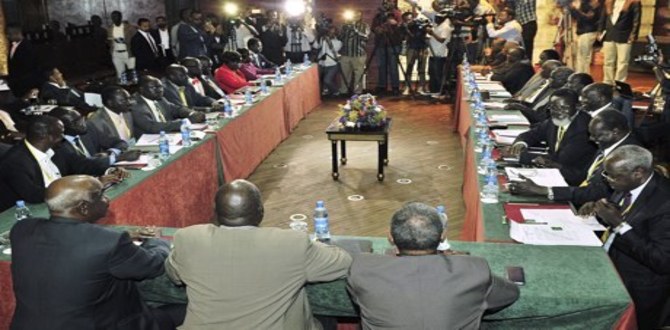Anne Samson says that the memoirs of Dr Norman Parsons Jewell open up a whole new understanding of life during the war in East Africa.
With all the technology we have today, one feels ‘On Call’ 24/7 unless one purposefully switches off – pretty much as I did this past weekend. However, there are still professions where people are ‘On Call’ outside of ‘normal’ (what is ‘normal’ these days?) working hours. Plumbers, road side assistants and police are some of those who remain ‘On Call’ as do nurses, paramedics and doctors. All are unsung heroes. And it is around a doctor ‘On Call’ that leads me to write today.
At the end of last week, a parcel arrived containing some copies of On Call in Africa in war and peace 1910-1932 by Dr Norman Parsons Jewell. This parcel marked the culmination of over a year’s work getting to know Norman Jewell; and what an honour.
 Norman led an extraordinary life. He left for the Seychelles in 1910 serving in the Colonial Services as a doctor and where his soon to be wife, Sydney, joined him. With a young family, he asked to enlist in the armed forces and found himself in East Africa during December 1914. He remained in East Africa save for a few trips ‘home’ to Ireland (Bloody Sunday 1920) and the UK before being made redundant as a result of the 1932 austerity measures.
Norman led an extraordinary life. He left for the Seychelles in 1910 serving in the Colonial Services as a doctor and where his soon to be wife, Sydney, joined him. With a young family, he asked to enlist in the armed forces and found himself in East Africa during December 1914. He remained in East Africa save for a few trips ‘home’ to Ireland (Bloody Sunday 1920) and the UK before being made redundant as a result of the 1932 austerity measures.
Norman was one of the few doctors to serve virtually all through the war in East Africa and more significantly, he served with the 3rd East Africa Field Ambulance (3EAFA) – responsible for black and Indian soldiers and carriers. As a result, his memoirs open up a whole new understanding of life during the war in East Africa. The memoirs were written a few years after the war, Norman’s original diaries having gone AWOL but the accuracy and sharpness of his recall was consistently reinforced as I looked up dates, names and events. I seem to recall only one instance where there was a minor misalignment of fact – the dates of death of Frederick Selous and his sons; easily done when news only arrives every six months…
But perhaps the highlight for me was the discovery at #UKNatArchives of the war diaries of 3EAFA written in Norman’s own hand. A study of the War Diaries involving Norman provide an interesting insight into diary and record keeping of the time. Norman did not keep (or the diaries were not retained) during the time that Norman reported into Temple-Harris of Seventeen Letters to Tatham fame (available), while there are two concurrent diaries maintained by Norman at the time he was in charge of 3EAFA and acting Senior Medical Officer in Lindi following South African Dr Laurie Girdwood’s capture by the Germans.
What this suggests, keeping in mind the AWOL personal diary is that Norman at one stage was keeping 3 diaries – all for different purposes about the same thing. The two in his official capacity are interesting to compare: little is duplicated showing how the gdound level 3EAFA fed into the Divisional level. Given the comments in Norman’s memoir, it would be fascinating to see what he had recorded in his personal diary at the time – did he contemplate then making aspects of it public? He clearly had a routine to his day, one which he maintained as well as circumstances would allow – virtually all diary entries are made at 6pm – half an hour before sun-down. This too, opens up questions and thoughts about life on campaign in East Africa…
Another outstanding feature of Norman’s memoir and war diaries is his recognition of others, especially Zorawar Singh, and the work they did, as well as the importance of friendship. He met many of the Legion of Frontiersmen and following his move back to London, remained in touch with many he had befriended in Africa. His memoir is more than ‘just’ a military account, it opens a window onto colonial life in the early part of the Twentieth Century, while his post-war work introduces us to the challenges the medical world faced in the tropics and busveld.
And, in keeping with his time, he protected his family – there is little mention of them in the memoir. BUT, they are not ignored in On Call – Part 3 of the book pays tribute to Norman’s wife Sydney – a remarkable woman in her own right: if only she had kept a diary!
I hope others who encounter On Call in Africa in War and Peace 1910-1932 find it as eye-opening, rewarding and enjoyable as I did working with the manuscript (and the family). The #WW1 #Africa jigsaw has had another piece fall into place…
This article was first published on Anne Samson’s History blog.
On Call in Africa, in War and Peace, 1910-1932. Gillyflower Publishing. 2016.
Dr Anne Samson is an independent historian who has published two books on the First World War in Africa and numerous articles on related themes including the role of the historical novel in writing history. Follow her on Twitter @thesamsonEd.
The views expressed in this post are those of the author and in no way reflect those of the Africa at LSE blog or the London School of Economics and Political Science.






1 Comments